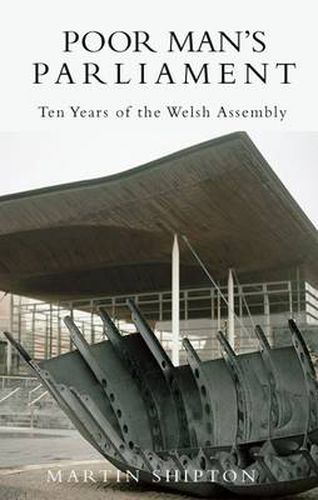Readings Newsletter
Become a Readings Member to make your shopping experience even easier.
Sign in or sign up for free!
You’re not far away from qualifying for FREE standard shipping within Australia
You’ve qualified for FREE standard shipping within Australia
The cart is loading…






After a decade of devolution 6 out of 10 Welsh voters don’t know which parties form the Welsh Assembly Government. The first First Minister is recognised by less than 50%, other party leaders have of less than 10% recognition. In addition to this level of political disengagement, the system of law-making seems not fully understood even by constitutional lawyers. This book seeks to explain why the hopes of 1999 failed to materialise and why the National Assembly has yet to capture the nation’s imagination. Its themes emerge through a chronological narrative, in which the author will comment on key events. They include: UK Labour’s installation of the uncharimsatic Alun Michael as leader of an organisation which needed to capture public imagination; Westminster Treasury obstinancy over crucial match funding for European money, and Michael’s subsequent downfall; Labour’s obsession with party unity at the expense of clear national leadership; the stifling of public debate through reliance on Assembly patronage of so many organizations; the quality of Assembly Members, especially Labour’s; shameless defiance of Freedom of Information Act to stifle criticism. Poor Man’s Parliament covers the Assembly from its beginnings in 1999 to Rhodri Morgan’s resignation in November 2009, exploring the record of government by Labour and Plaid Cymru, and analysis of recent electoral trends. It is written from a pro-devolution viewpoint, though one dismayed by events.
$9.00 standard shipping within Australia
FREE standard shipping within Australia for orders over $100.00
Express & International shipping calculated at checkout
After a decade of devolution 6 out of 10 Welsh voters don’t know which parties form the Welsh Assembly Government. The first First Minister is recognised by less than 50%, other party leaders have of less than 10% recognition. In addition to this level of political disengagement, the system of law-making seems not fully understood even by constitutional lawyers. This book seeks to explain why the hopes of 1999 failed to materialise and why the National Assembly has yet to capture the nation’s imagination. Its themes emerge through a chronological narrative, in which the author will comment on key events. They include: UK Labour’s installation of the uncharimsatic Alun Michael as leader of an organisation which needed to capture public imagination; Westminster Treasury obstinancy over crucial match funding for European money, and Michael’s subsequent downfall; Labour’s obsession with party unity at the expense of clear national leadership; the stifling of public debate through reliance on Assembly patronage of so many organizations; the quality of Assembly Members, especially Labour’s; shameless defiance of Freedom of Information Act to stifle criticism. Poor Man’s Parliament covers the Assembly from its beginnings in 1999 to Rhodri Morgan’s resignation in November 2009, exploring the record of government by Labour and Plaid Cymru, and analysis of recent electoral trends. It is written from a pro-devolution viewpoint, though one dismayed by events.